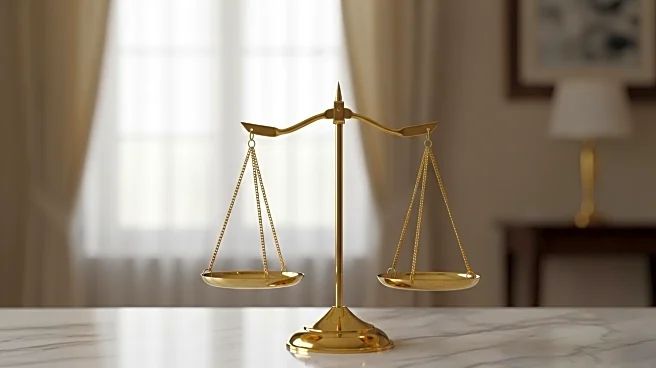What is the story about?
What's Happening?
President Trump benefits from a 'presidential exemption' to federal conflict-of-interest laws, which his aides must adhere to. This exemption allows him to maintain business interests while in office, unlike his Cabinet members and other officials who must divest or recuse themselves from conflicting interests. This situation has led to criticism from ethics experts who argue that it undermines public confidence in government integrity.
Why It's Important?
The exemption raises ethical concerns about the potential for conflicts of interest at the highest levels of government. While aides and officials are required to comply with strict ethics rules, the president's exemption could lead to perceptions of favoritism or exploitation of loopholes. This situation highlights the need for transparency and accountability in government to maintain public trust.
Beyond the Headlines
The exemption for the president and vice president is rooted in historical precedents, intended to allow them to address any issue without legal constraints. However, this has led to debates about the adequacy of current ethics laws and whether reforms are necessary to prevent potential abuses of power. The situation also reflects broader discussions about the role of ethics in governance and the balance between legal frameworks and ethical norms.
















